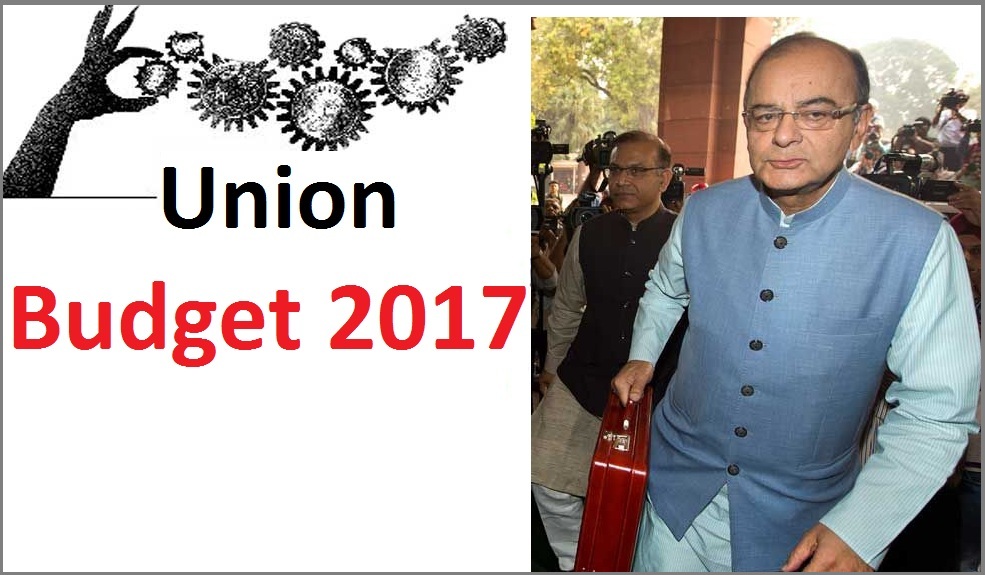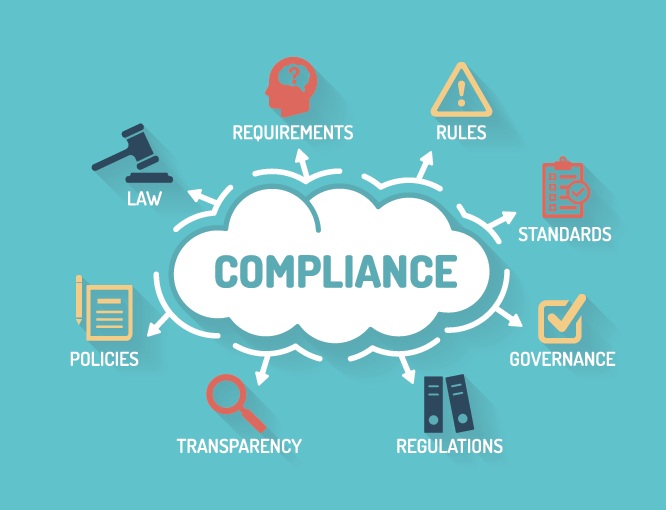Info-Cafe
Results for : All categories
Results for : All categories
Union Budget 2017 Insights: Income Tax Rate and Tax Rebates Slashed for Small Tax Payers
The Finance Minister Shri Arun Jaitly has presented the Union Budget 2017 in Parliament. The Budget that is usually presented on February 28 annually was rescheduled this year and the Railway Budget that is presented earlier than the Union Budget each year, will be introduced the same day as the main Budget in 2017. The Finance Minister has proposed the following measures:
- Extend the provisions of Section 115BBDA of the Income Tax Act which provides for levy of tax at the rate of 10 per cent on dividend income exceeding Rs 10 lakh, to all resident persons except domestic Companies or trust or institution or fund registered under section 12AA or referred to in section 10(23C). Presently, these provisions are applicable only to the individuals, Hindu undivided family (HUF) and firms.
- Income tax for small Companies with Annual Turnover of up to Rupees 50 Crore will be reduced to 25% from 30% earlier. Further, Start-ups will benefit from the lower tax and Start-ups will have to pay tax on profits for three out of seven years.
- Cash transaction above Rupees 3 Lakh will not be allowed. This come after the demonetisation and various other measures by the Government to curb black money in the Country.
- Service charges levied on booking e-rail tickets through the Indian Railway Catering and Tourism Corporation (IRCTC) will be withdrawn.
- In case of transfer of unquoted equity shares, where the fair market value, determined in the prescribed manner is less than the consideration received, such fair market value shall be the deemed value of consideration for the purpose of computation of capital gains.
- Introduction of a new provision in the Income-tax Act to provide for tax deduction at source at the rate of 5 per cent by an individual or HUF, other than those whose books of account are required to be audited, while making payment of rent of an amount exceeding Rs 50,000 per month.
- The audit limit for business entities opting for presumptive scheme to be increased from Rs.1 crore to Rs.2 crore. Further, Individuals and HUFs not required to keep books of accounts if their turnover is up to Rs.25 lakhs or income is upto Rs.2.5 lakhs.
- The time limit for revising a tax return reduced to 12 months. Also time limit for completion of scrutiny will be brought down to 12 months from Assessment Year 2019-20 onwards.
- Professionals in presumptive scheme to pay advance tax only in one instalment in March instead of four.
- Investment in Category 1 and 2 foreign portfolio investors registered with SEBI to be exempted from provisions of indirect transfer.
Union Budget 2017-18 Highlights

Finance Minister and Ministry of Corporate Affairs Arun Jaitely presented Union Budget 2017-18 in Parliament on Wednesday (1st Feb 2017). This is the fourth annual budget of Narendra Modi government. Here are the highlights of the Union Budget:
Macro Economic
- Forex Reserves at healthy 361 b $ representing 12 months of imports
- IMF GDP growth forecast at 7.2% in 2017 and 7.7% in 2018
- Demo and GST to have an affirmative impact in the long term
3 Changes for this Budget
- Budget date advanced to 1st Feb to enable approval of the Bill before 1st April
- Merger of the Railway Budget with the Union Budget: To bring railways in the centre stage of the fiscal policy
- Done away with the Plan and Non Plan expenditure: To give holistic view of expenditure
Theme for 2017-18: Transform, Energise and Clean India (TEC India)
Key Themes of this Budget
- Farmers
- Measures for easy availability of loans to Farmers
- Soil Health cards: Mini labs to be set-up in Krishi Vigyan Kendras
- Modern Law on Contract Farming to be proposed
- Rural Population
- 1 cr households and 50,000 Gram Panchayats to be brought out of poverty by 2019
- MNREGA to be reoriented
- 133 km road constructed per day
- 1 cr houses to be constructed by 2019 under Pradhan Mantri Aawas Yojna
- 100 % village electrification to be achieved by 1st May, 2018
- Promotion of skill development and livelihood opportunities
- Youth
- System of “Annual Learning Outcomes” in schools proposed
- Focus on innovation
- Reforms in UGC
- Good institutions to have autonomy
- Swayam Platform to be launched with 350 online courses linked with DTH channels
- 100 India International skill centres to be set-up
- 5 special tourism zones to be set-up: Incredible India campaign to be launched across the world
- Poor
- Affordable housing to get infrastructure status
- Targeted elimination of diseases like TB, IMR, MMR and many more in a time bound manner
- Focus on healthcare
- Structural transformation for medical practitioners
- 2 AIIMS to be set-up in Jharkhand and Bihar
- Drugs and Cosmetics Act to be amended for availability of cheap drugs and generics
- Labour Laws to be overhauled in the below 4 themes:
- Wages
- Industrial Relations
- Social Security
- Safety
- LIC to start pension scheme for Senior citizens with guaranteed 8 % returns
- Infrastructure (including Railways)
- Passenger safety fund to be created for passenger safety measures for railways
- 500 stations to be made differently enabled friendly
- Measures for Swachh Railways including measures on waste management
- Service charges for booking tickets through IRCTC to be withdrawn
- New metro rail policy to be announced; New Metro Rail Act has already been enacted
- 2.4 Lacs cr allocated for transport sector (air, sea and road)
- Telecom: OFC network to be expanded; Broadband to be available to 1.5 Lacs gram panchayats
- Solar: 2nd Phase of Solar Power Development for additional 20,000 mw capacity
- Electronics Manufacturing: India to be made a global hub for electronics manufacturing
- Trade Infrastructure Export Scheme to launched for promotion of exports
- Financial Sector
- More than 90 % FDI are through automatic route
- Foreign Investment Promotion Board (FIPB) to be abolished
- FDI to be further liberalised
- Multi State Cooperative Act to be amended to prevent abuse by unscrupulous people
- Computer Emergency Response Team (CERT) to be formed specifically for financial sector to focus on cyber security
- Shares of IRCTS, IRFC to be listed
- Shares of Central Public Sector Enterprises (CPSEs) to be listed
- Lending target of banks and financial institutions doubled
- Stand-up India scheme to be launched for Dalits and Women entrepreneurs
- Digital Economy
- India on the cusp of a solid digital revolution
- BHIM app adopted by 125 Lacs people for UPI interface
- Aadhar enabled payment system to be launched
- Banks to issue 10 Lacs POS terminals by Mar, 17
- Easy unsecured loans to be advanced on the basis of transaction history
- Comprehensive review of Payments and Settlements Act, 2007
- Payment Regulatory Board to be set-up for the Payments and Settlements Act, 2007
- Amendments to be proposed in Negotiable Instruments Act for efficient resolution of cheque bouncing disputes
- Public Service: Effective Governance
- Central Defence Travel System (for easy online booking of tickets by Defence personnel)
- Rationalise the number of Tribunals by merging them wherever required
- Introduction of legislative changes to confiscate the assets of loan defaulters who abscond the country
- Prudent Fiscal Management
- Total Expenditure: Rs. 21.47 Lacs cr
- Defence expenditure excluding Pension: 2.17 Lacs+ cr
- Expert Committee Report: Debt to GDP proposed at 60 % by 2023; 3 % fiscal deficit recommended for the next 3 years with a deviation of 0.5 %.
- Fiscal deficit for 2017-18 pegged at 3.2 % of the GDP and 3 % for next year
- Tax Administration
- No. of individuals filing returns is 1.74 cr against 4.2 cr individuals employed in organised sector
- No. of individuals filing returns is 1.81 cr against 5.6 cr individuals employed in unorganised sector (including proproietorships)
- Out of 13.94 Lacs Companies, only 5.97 Lacs returns filed for AY 2016-17
- 2.76 Lacs Companies show Nil Income / losses in AY 2016-17
- Only 7781 Companies have shown Profits before Tax of 10 cr+
- Out of 76 Lacs individual tax payers with income between 5 Lacs to 10 Lacs, 56 Lacs are salaried individuals
- Largely a tax non compliant society and large scale tax evasion is rampant as indicated by 1.2 cr cars bought and 2 cr abroad visits taken for tourism /business trips
- Growth in Advance Income Tax on Personal Income in 2016-17 of 34.8 % over last year
- Holding period for identifying long term capital asset in case of immovable property reduced to 2 years from 3 years
- Base year for indexation to be changed from 1.4.81 to 1.4.2001
- Basket of instruments through which Capital gains can be exempted to be extended
- Builders to be charged tax on notional rent on flats remaining unsold for more than 1 year from the date of completion certificate
- Income tax exemption for start-ups: Tax exempted for any 3 years out of 7 years (instead of the total window of 5 earlier)
- Carry forward of losses in case of Change in Management by more than 51 % limit allowed relaxed as long as the promoters remain same
- MAT Carry forward to be allowed for 15 years instead of 10 years
- Corporate Tax for Companies up to Turnover of up to 50 cr to be reduced to 25 %
- Basic Customs duty reduced to 2.5 % from 5 %
- NPA to be increased from provisioning from 7.5 % to 8.5% for financial sector
- Presumptive taxation u/s 44AD for Business Income: Rate reduced to 6 % from 8 % for turnover realised in non cash transaction
- Cash expenditure limit to be reduced to Rs. 10,000 for revenue as well as capital expenditure
- Cash receipts by Charitable organisations reduced from 10,000 to 2,000
- No transaction above Rs. 3 Lacs to be permitted in cash
- Maximum cash that a political party can receive is Rs. 2,000 from anyone source; Any amount can be received by cheque or through digital payment.
- Electoral bonds to be issued by RBI for political party funding; Donors can fund political parties by purchasing these bonds and donating these bonds to the parties. Parties can get the bonds redeemed from RBI within the prescribed time frame.
- BCD, Excise duty, SAD, CVD on manufacture of equipment supporting digital transactions like card readers, scanners etc.
- Thresholds increased for maintaining books of accounts u/s44AA from Rs. 10 Lacs to 25 Lacs
- TDS exempt for income of Insurance agents upon their self declaration
- Time period of revising return reduced to 12 months from the closure of financial year (as opposed to 12 months from the close of AY earlier)
- Time period of scrutiny assessment reduced to 18 months from AY 18-19 and 12 months for AY 19-20
- No scrutiny for first time return filers unless in case of suspicious transactions
- Income tax rate slabs for Individuals
- Income 2.5 Lacs to 5 Lacs: 5 % (instead of 10 % earlier)
- Other slabs remain same
- Rebate u/s 87A reduced to Rs. 2,500 (from Rs. 5000) for assessees with taxable income up to 3.5 Lacs (from Rs. 5 Lacs earlier)
- New Surcharge of 10 % for Income from Rs. 50 Lacs to 1 cr
- Existing Surcharge for income above 1 cr continues @ 15 %
- Simple 1 page form for Individual with income up to 5 Lacs other than business income
- Maximisation of efforts for E-Assessments
- Data mining to be done extensively to track tax evasion cases
What are the Mandatory Compliance Requirements for Companies in India?

First description you will discover about the economy of India is about its size and speed. Definitely, hailed as one of the largest and fastest-growing economies, India is poised to challenge the countries like China and the USA. Moreover, the Indian government after winning the 2014 elections has come up with various initiatives like “Make in India”, “Digital India” and “Swachh Bharat (Clean India)” that has raised the interests of domestic and international stakeholders.
As the Indian economy’s ship sets speedily on its voyage, there are millions of entrepreneurs who have thronged themselves in its progress. For that reason, there is an increase in the number of entrepreneurs with their private limited companies. Though private limited companies bring several advantages after their incorporation, there are also certain compliance requirements that need to meet in India. Obviously, flouting of any rules would bring the company in the court of law.
Mandatory compliances for private limited companies in India
Post registration, the company has to mandatorily comply with the following:
- Auditor appointment – A private limited company has to appoint an auditor to audit its accounts. The auditor should be a practicing chartered accountant in India. The board of directors of the company should appoint the auditor within the 30 days of the company’s incorporation or they could be appointed in the Extraordinary General Meeting (EGM) of the company within the 90 days of the company’s incorporation. Reappointment should happen in the consequent AGM or Annual General Meeting of the company.
- Filing annual returns – Many companies fall under Income Tax Officer’s net if they do not comply with this rule. Within the 60 days of the AGM, the company should file its annual return under the form MGT-7, which is also available at the www.mca.gov.in website. It should be filed within the financial year.
- Financial statements – There shall be board meetings held at least four times a year (minimum 2 times in case of startups or small companies). The board of directors would need to approve and sign the financial statements of the company. Next, the financial statements are to be filed with the Registrar of companies within 30 days of the AGM. The form AOC-4 is available at the mca.gov.in website for the same.
- Board of directors’ report - In a directors’ report format, the board of directors has to furnish the details of their individual directorship in other companies and that too every year. Quite a number of companies have directors who are also appointed in the same role of other companies.
- Statutory registers maintenance – A prerequisite for every company is to maintain the statutory registers of members, debenture holders, employee stock options, charges, shares and securities brought back, sweat equity shares, renewed and duplicate share certificate and a foreign register of debenture holders, members, security holders or beneficiaries who are residing outside India.
- Minutes of proceedings – General meetings, board of directors’ meetings should mandatorily cause minutes of the entire proceedings.
What happens to the company that fails to comply?
It becomes a punishable offense when a company fails to comply with the rules and regulations under the Companies Act. They levy fines on companies for non-compliance and charge additional fees if they do not meet the requirements within the specified time period.
It is recommended that the companies hire expert help for complete guidance.
-----------------------------------------------
Also Read:
Chartered Accountant Services in Bangalore Karnataka
Annual Return Filing for Companies Under the Compliance of 2013
Why Trademark Registration Is Vital For My Business?

Ingenious ideas, strenuous efforts and hard-earned money – you would have spent all of it to develop a business, a brand per se, but registering a trademark for it allows you to protect those unrelenting efforts of yours.
Quite a number of people who own their businesses and have a trademark believe that their responsibility is over after the trademark registration, however, it’s not true. It comes up with a responsibility and they should embrace and execute it bravely.
By definition, a trademark is said to be an identifiable sign, expression or design, which recognizes any product or service. In India, there would be millions of businesses that identify themselves from a unique trademark. But, that’s not it. There are several brands too, whose cases of trademark infringement are under judicial consideration.
Trademark and patent wars
Before we bring up any topic to justify the need of a trademark. A brief account of some cases regarding trademark and patent wars would definitely ring a bell in your ears.
-
Cadbury versus ITC on “Eclairs” trademark
Cadbury had filed an injunction against ITC for using “Eclairs” in one of its products. The claim made by Cadbury was rejected by the IPAB (Intellectual Property Appellate Board) as it could not produce any proof of use or evidence regarding the three trademarks. Notably, the word “Eclairs” is a common word and can be used by anyone without having to register it. Here, we should learn that the sign has to be a distinctive one, which particularly identifies the product or service, its quality and goodwill.
-
Bajaj Auto Limited versus TVS Motor Company Limited
The patent fight regarding use of Twin-spark plug engine technology between the two vehicle manufacturing giants Bajaj and TVS motor is widely known. The Supreme Court offered a landmark judgment of directing all courts to conduct speedy trials and dispose the IPR cases. Here, the appellant (Bajaj) won the case because it registered the patent for the technology it invented.
Importance of trademark registration
Though there is a possibility of using a trademark without registering it, but if it’s done, then it becomes easy for you to exercise the rights as the trademark owner. Since you acquire the legal position now as a genuine owner of the trademark, you can send notices to the brands that involve in the infringement of your trademark. It doesn’t matter much if your business is run in a small, congested location or a big commercial building. Trademark registration allows you to protect the business from being devastated by trademark infringer.
Legal help on trademark
It becomes a chaotic situation for someone who isn’t acquainted with the trademark laws and related subjects. As a matter of fact, many get persuaded by frauds and land in deep troubles. Therefore, seeking professional legal help is advisable. As a registered proprietor you would need to apply for the trademark registration, which also includes certain legal formalities.
If you miss out a lot of things on your own, you would face difficulties in the road ahead. But, with a legal help by your side, you can register the trademark easily. It is an imperative that you hire a licensed professional for the task who can clearly describe the steps of registration, so that you understand the entire procedure and contribute accordingly.
Own your trademark with pride!
------------------------------------------------------------------
Related Posts:
How Trademark is Important for Your Business?
Difference between Registered and Unregistered Trademark
Difference between Trademark, Copyright and Patent
Professional Guide to Entering or Starting into Entrepreneurship

Have you ever thought of becoming an entrepreneur on your own and having a fabulous career for yourself that is going to make you financially independent? Well, then you are not alone. Plenty of people want to become an independent entrepreneur on their own but do not know how they are going to start their careers. Here is a brief guide on becoming a successful entrepreneur.
Brainstorm creative ideas for your business
Before you actually start with your business, you will need to come up with some good ideas about it that matches with your interest levels. Instead of just doing something that you think might bring you money, explore your interests and come up with ideas that can you can work on. Also do some market research to understand other companies that operate in that specific niche to have a clear idea how you may take your business to greater heights of success.
Develop a unique business plan
Developing a business plan involves thinking about the purpose and nature of your business. Who are the end users or customers that you need to target for your enterprise? What are your plans when it comes to managing your business finances? How you will manage the production or supply aspects of your business?
Assess your financial condition
To start your business, you will need to make critical financial decisions from the start. This involves deciding on whether you will need to finance your startup by yourself or you are going to loan money from a bank. You can also seek crowdfunding support, but for that you need to make sure that your business idea is something highly unique and others are also going to benefit from it greatly.
Determine the structure of your legal business
Business firms can be of many types, such as a partnership business, a sole proprietorship business, or corporations such as an LLC or limited liability corporation. You will need to decide the structure of your business from the very beginning so that it caters to the specific goals that you have in your mind.
Register your business with the government
In order to be recognized officially as an independent business entity, you will need to register your business with the government of you country. Your incorporation document is going to include a range of information such as business name, corporate structure, business purpose, stock details as well as crucial information relating to your company. You can also simply register your business with a unique name and trademark it to obtain extra legal protection.
Choose technology for your business
Every kind of business requires a range of technical tools to function efficiently. This may just include software systems for invoicing, accounting, presentations and point-of-sale functions. You can also invest in developing apps for your business that your end users can use to get in touch with you. The other thing that you will have to decide on is the production techniques and the machines or systems you are going to need for it.
------------------------------------------
Read More:
20 Best Small Business Ideas to Start With Low Investment
What are Advantages of Registering a Private Limited Company in India?

Primarily, a business entity is created to either sell a product or service. Under commercial laws, these entities are formed and there are many types of it. In all of these, in India, the private limited company business entity is widely popular. Business persons have accrued huge wealth due to these companies. Apparently, this gives a reason why its acceptance is much higher as compared to the others like Limited Liability Partnership (LLP), Cooperatives, and Corporations and so on.
What is a private limited company (or “Pvt. Ltd.” as we hear daily)?
By definition, it is a small business entity held privately, restricting the number of shareholders to 50, limiting the business owners only to their shares, and not allowing the shares to the general public. The phrase “Private Limited” means limited liability only for the owners, unlike the public limited companies where the shares can be sold or traded with the general public.
Why registration of a private limited is important?
For an entrepreneur, it is always tough to decide on the type of business entity they want to start with. To that, the experts suggest them starting a private limited company. However, there have been several skeptics too who offer their volley of questions, raising doubts and suspicions over this. Regardless of what they say, private limited company registration in India is highly beneficial in more than one way. It is important because it helps in attracting funding, limits business assets to be only at risk and not the personal assets and opens up multiple opportunities.
What are the advantages of a Pvt. Ltd. Registration?
Quite a flurry of questions downpour regarding the advantages of a private limited company. Here, we’re doing a bit to showcase only “some” of them:
- Tax advantages – Though the company has to pay a corporate tax on its taxable profits yet they are exempted from the higher tax rates of personal incomes. That is definitely a big advantage of private limited company, which does not happen in the case of a sole trader or proprietor.
- Resources and finances – Having the adequate funds, the private limited companies can produce goods, which costs much lower. Consequently, it helps in reaping profits and allows business growth through retaining funds.
Similarly, there are many more like these that the private limited companies have been enjoying after registration.
How to register the private limited company?
The procedure to register a private limited company is now becoming easier. It includes obtaining the Director Identification Number (DIN) from the MCA or Ministry of Corporate Affairs, Search and apply for the company name availability, application of incorporation, document verification and finally, the certificate is issued.
The documents needed for registration include:
- Permanent Account Number or PAN card of all directors/promoters/shareholders.
- Address proof of all shareholders/promoters/directors, which could be a voter ID, Aadhar Card, or Driving License.
- Identity proof of all shareholders
----------------------------------------------------------------------------------------------------
Related Posts:
Professional Guide to Entering into Entrepreneurship
One Person Company Explained for Young Entrepreneurs
Why are Most Entrepreneurs Opting for Private Limited Company?